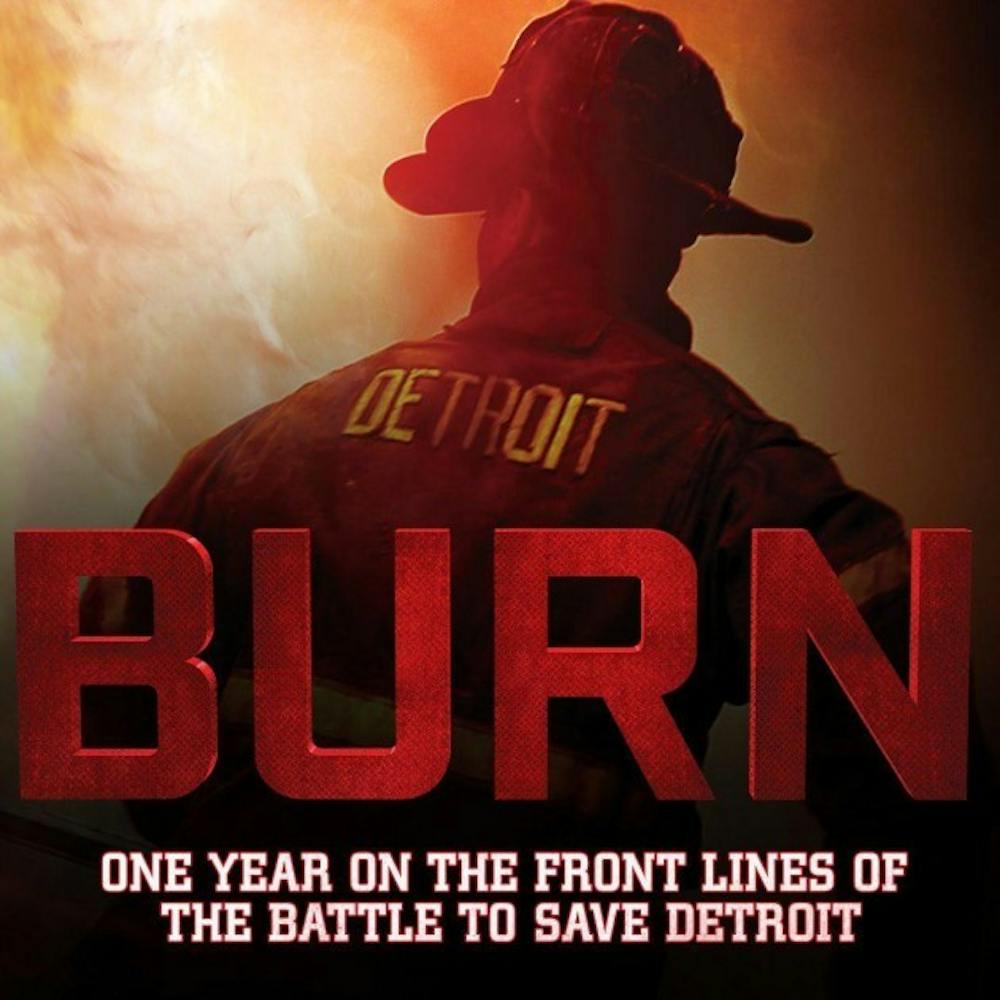Film: Burn
Release Date: March 8
Studio:Apostle
Grade: B
Detroit is being left for dead. Its inhabitants are constantly fleeing the forsaken city and its decaying structures. Crime is relentlessly on the rise. Unemployment is a common practice. Vacant buildings unceasingly smolder at random.
And, yet, there are those who stay behind to defend their lifeless city. They are the members of Detroit's fire departments, who serve as the centerpieces of Tom Putnam and Brenna Sanchez's (Hoe to Burn a City Down) awakening documentary, Burn. The film exposes the demoralizing truths of a once-thriving city that has weakened from lack of organization and human interest.
The screen shows a crumbling Detroit, but it is really about the consequences of inattentive citizens who ultimately fail at caretaking their city. Interestingly enough, the film portrays this laziness through the perspective of people from the other end of the spectrum - citizens who do care about the city that raised them.
Burnencapsulates an entire year in Detroit, mostly following the daily missions of the fire department. The crew really grows on the audience; it can be easily sympathized with as members of the middle class abandoned by their government and fellow Detroit citizens.
The beginning scenes of Burn aren't great filmmaking. Before a line of dialogue is spoken, a bell is heard and the squad rushes to a house fire. Then follows a 10-minute montage of fire blazing, which seems to go on and on and on. The shots themselves are great; much praise is deserved to cinematographers Mark Eaton (Heal the Ocean), Nicola Marsh (Twenty Feet from Stardom) and Matt Pappas (Too Hot for Burn), who place the camera within the trenches of burning buildings. But shots of infernos don't substitute for character development.
Fortunately, though, Putnam and Sanchez eventually land on their feet and slow things down and walk their film through the hardships of the individual firefighters.
The two main subjects are newly appointed fire department chief Donald Austin and recently retired firefighter Brendan Milewskil. A majority of the film's success derives from these likeable men, who give their city everything and ask for nothing back.
Austin struggles to rework the department - and the city - from the ground up. His fire trucks are rusty and broken down. Certain equipment is lost or damaged. Pay attention to Austin's facial expressions, as he silently grieves over his new, degenerate department. He's the most memorable figure in the film, as the man desperate to get things done in a place with nothing going for it.
Milewski was a firefighter forced to retire earlier than planned, after debris collapsed and crushed him on the job. He's now paralyzed from the waist down for the rest of his life. His story is essential to Burn because it alludes to struggles of the working class, while Austin's perspective is shown from the corporate level.
Yet it's possible for some viewers to resist this documentary. Burn doesn't perfectly suck its viewers into the decaying Detroit as well as it could've; the audience always observes the atrocities from the outside, rather than experiencing them alongside the firefighters. And with an unwarranted opening montage, there's no immediate pull into the story. Viewers may question why they're watching the film to begin with, but for those who stick it out, the film is worth the wait.
If the filmmakers had trimmed some of the fat during the editing process, a shorter result could have guided viewers to the point faster. Editing a year's length of footage is understandably trifling, but the glue blatantly doesn't stick and becomes distracting.
Directors Putnam and Sanchez show relentless dedication to their material and prove they can tell a worthy story. With further collaborations in the future, they can both learn from their slight mistakes and provide a groundbreaking documentary someday.
As it stands, Burn is educational enough to lecture its audiences about the mishaps of a terribly run-down city, while also highlighting individuals affected by the atrocity. Whether or not the film provides a solution to the problem remains in question.
Email: arts@ubspectrum.com





